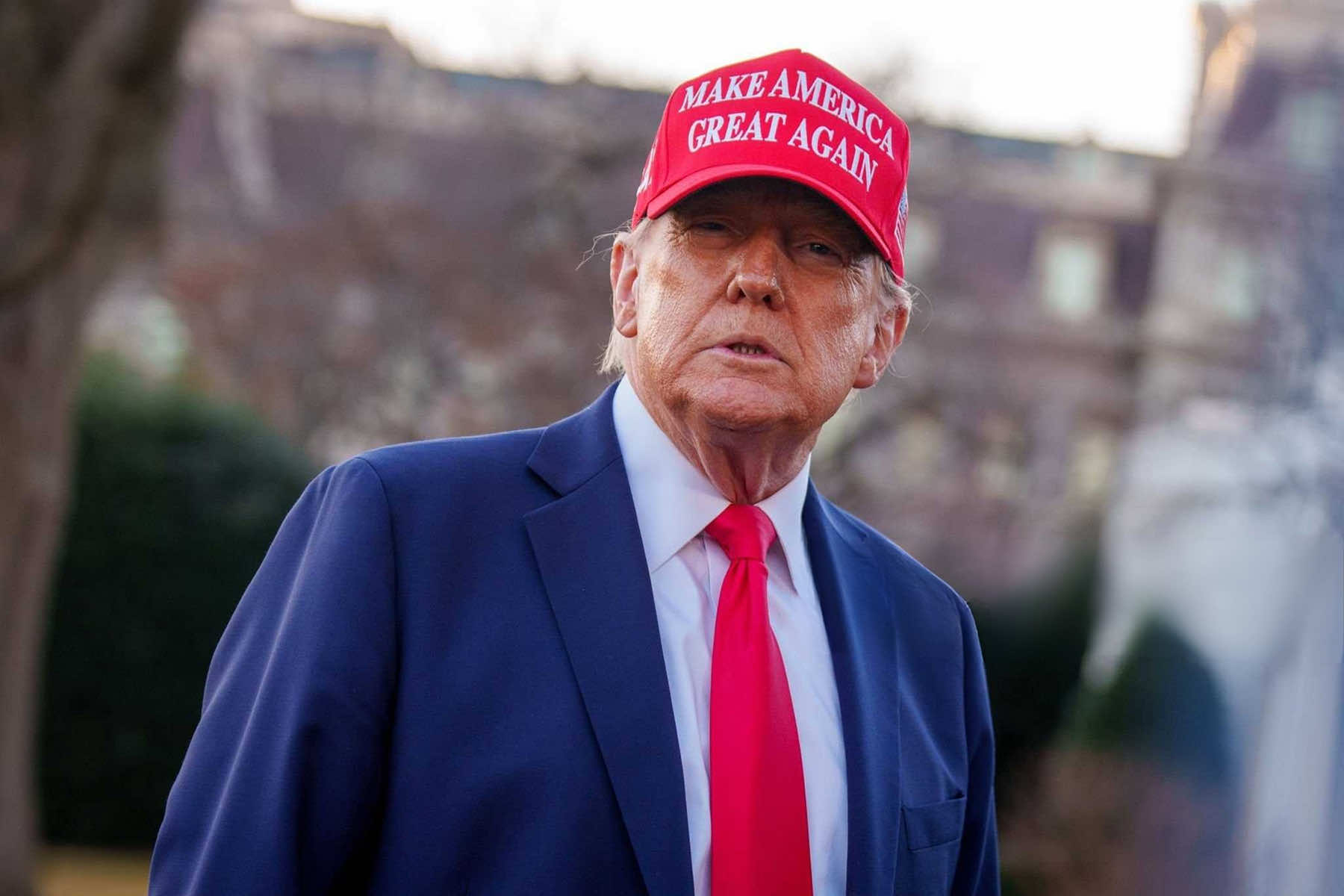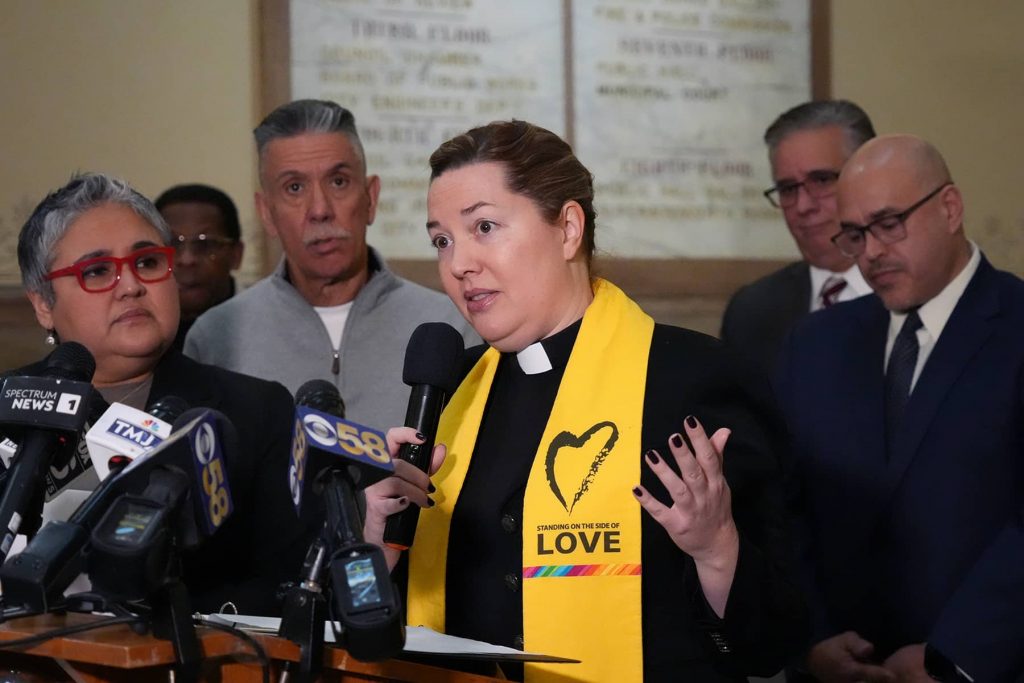
Donald Trump’s appeal once seemed unstoppable in certain circles, fueled by a mantra of unapologetic disruption that many supporters hailed as a breath of fresh air. They relished his confrontational style, praising the very chaos that unsettled others.
Political adversaries were “owned,” experts were mocked, and the concept of governing through reasoned discourse gave way to a carnival of insults. Those who warned that such an approach would exact a grave cost were dismissed as overly sensitive or out of touch.
Today, as a host of economic and diplomatic crises converge, the same supporters find themselves grappling with the damage they helped unleash. Far from offering pity, critics argue there is no reservoir of sympathy left.
Trump’s platform thrived on the notion that derailing the status quo was the ultimate goal. It was never just about policy differences, it was a cultural battle wrapped in bravado. For years, those who supported his movement championed an unyielding approach that mocked compromise and nuance, even as each outburst infuriated allies and alarmed neutral observers.
The ensuing turmoil battered institutions meant to safeguard democracy, discredited respected authorities, and stirred conflicts that left many stunned by the rapid erosion of political norms. Supporters basked in what they interpreted as thrilling victories, measuring success by the volume of outrage directed at them.
Scandals that would have ended political careers in past decades became everyday events. Claims of misconduct, bigoted remarks, open hostility toward longstanding allies — none of it dampened the fervor. Part of this phenomenon stemmed from an orchestrated campaign to label any criticism as evidence of a media conspiracy.
Another factor was the personal gratification derived from seeing perceived elitists fume. The brand hinged on antagonism, a point hammered home by rallies where chants demeaning immigrants or political opponents fueled roars of approval. Observers outside this orbit often wondered how people who once espoused conventional values found themselves lauding authoritarian gestures and embracing policies that harmed their own communities.
Promises of economic revival accompanied every stage of this spectacle. Manufacturing towns believed that a new era of protectionist policies would restore factories and bring prosperity, even as trade experts warned of retaliatory tariffs and damaged relationships with crucial partners. Little heed was paid to the potential fallout, because the emotional satisfaction of confrontation overshadowed practical concerns.
Evidence of looming downsides — the farm sector’s vulnerability to trade wars, the potential for bankruptcies driven by market instability — was ridiculed as fearmongering. When farm closures accelerated and jobs vanished without returning, anger turned to regret in some quarters, but only quietly. The public face of the movement insisted that naysayers were still the problem.
The pandemic that struck during Trump’s tenure further exposed the cost of placing blind faith in an administration that scorned expertise. Allies who once exalted “alternative facts” discovered that reality does not bend to public relations spin.
Overworked hospitals, medical shortages, and an erratic federal response shattered illusions of competence. Cities endured surges in caseloads while officials argued about basic health measures. Even then, a vocal segment cheered as scientists and doctors were marginalized, labeling them part of an imaginary global conspiracy. This defiance persisted despite mounting fatalities, intensifying the sense that cruelty had taken precedence over empathy.
Events overseas compounded the turmoil. Longtime partners found themselves sidelined or insulted, prompting questions about the country’s reliability. Foreign leaders accustomed to decades of cooperation encountered sudden hostility and erratic diplomacy. In some cases, adversarial figures — whose motives included destabilizing democracies — found themselves lauded by Trump’s circle, shaking confidence in old alliances.
Critics emphasized that such moves endangered national security, but supporters, fixated on slogans about sovereignty and “America First,” waved off these objections. The idea of constructive engagement with the world gave way to a siege mentality, as though alliances were burdens instead of bulwarks.
Domestically, the list of casualties lengthened. Minority communities who had already suffered discrimination encountered rhetoric that validated hateful ideologies. Incidents of harassment and violence targeted at marginalized groups rose in several regions. The administration’s stance on immigration birthed policies that critics likened to humanitarian crises.
Families were separated at the border, fueling outrage from civil rights organizations, while supporters defended the measures as tough but necessary. Over time, photographs of distressed children in detention centers circulated widely, intensifying the moral outcry. When asked to reconcile such scenes with the movement’s proclaimed values, Trump loyalists often shifted blame to nonexistent conspirators.
Those who objected to this trajectory were ridiculed as weak or disloyal to the country. The scorn reached a peak whenever protests surfaced, typically focused on racial injustice or government overreach. Participants were described as anarchists or terrorists, and even moderate dissenters were painted with the same radical brush.
Federal forces intervened in local matters, tear-gassing peaceful demonstrators while cameras rolled. Rather than muster any shame, a significant cohort cheered these crackdowns, interpreting them as proof of decisive leadership. It was only after months of turmoil, and mounting unrest, that cracks began to show in the movement’s absolute confidence.
Then came the day when Trump’s own supporters confronted an undeniable crisis they could not simply blame on outsiders. Market crashes, exacerbated by trade disruptions and global uncertainties, started hitting retirement accounts. Military families, once loyal to the administration, voiced dismay at the White House’s approach to alliances.
Economic woes, including bankruptcies and a looming recession, revealed the chasms in a policy framework built on antagonism. Confronted by these realities, a faction of supporters began shifting tone, quietly admitting the outcomes were not what they had hoped. An underlying sense of betrayal emerged in private conversations, though public loyalty often remained out of reflex.
Critics who had been dismissed for years found themselves with little compassion to spare. After being derided as alarmists or traitors, they watched as the very architects of the crisis expressed a desire for understanding. Scholars point to this dynamic as a recurrent theme: a populist movement that glorifies its own cruelty cannot readily pivot to demand empathy for the damage it experiences.
For many, the rhetorical bombs that launched vicious attacks on immigrants, refugees, and protesters were impossible to reconcile with pleas for unity. The sense that a scorched-earth approach left no moral high ground behind fueled a collective refusal to sympathize with those who finally realized the flames had engulfed them.
Observers recall that cruelty was not a byproduct, but a feature of the movement’s ethos. Initiatives ranging from travel bans on predominantly Muslim countries to severe crackdowns on asylum seekers were popular with the base not merely because of security concerns, but because these measures inflicted suffering on groups portrayed as threats. Public discourse devolved into mocking adversity faced by any demographic outside the favored in-group. When a leadership fosters that mindset for years, empathy evaporates. Now, as regrets surface, many find that the well of understanding is dry.
Some supporters attempt to distance themselves from the wreckage, arguing that they never intended for matters to escalate so badly. Yet the lines are blurred. The demand for absolute loyalty to Trump overshadowed moderate voices that might have tempered policy extremes. Figures who once cautioned against reckless behavior were labeled establishment stooges or globalist sympathizers.
The movement’s internal dynamic allowed no space for subtlety, punishing those who questioned harmful policies. That unwavering front may have felt powerful in its prime, but it ultimately walled off any possibility of introspection until the crisis became unavoidable.
Now, as the political landscape evolves, hostility lingers. A portion of Trump’s base remains fervent, blaming the entire mess on conspiracies or scapegoats. Others drift away quietly, hoping to evade scrutiny for their role in fueling chaos. Media outlets that once championed uncompromising vitriol find themselves grappling with disillusioned audiences.
Economists raise alarms about lasting damage from erratic tariffs and lost partnerships, while social activists highlight the human cost of entrenched animosity. The movement that took pride in ignoring caution has neither solutions nor remorse, leaving the disillusioned stranded.
A widespread sentiment runs through conversations among those who faced derision for sounding alarms in past years: sympathy for regrets is nowhere to be found. People ask how it benefits anyone to offer empathy to individuals who mock the concept, who invoked cruelty as a virtue, and who flung slurs at every opposing voice. The conclusion, repeated from civic forums to social media, is that forgiveness cannot be demanded when accountability is absent. The cruelty was deliberate, not an accident. The predicament is well deserved.
Little evidence suggests a grand reconciliation is imminent. Those who remain fiercely loyal to Trump recoil from the idea of contrition, equating it with surrender. The relatively quiet faction that has grown uneasy or regretful has no united front to push for repairs. Politicians who once stoked fires for electoral gain treat their role as a tactical necessity, refusing to accept blame. Former staffers from the administration pen memoirs shifting responsibility onto others, revealing that loyalty was a one-way street.
Communities that suffered the brunt of this turmoil—immigrants, refugees, minority populations—look on with justified cynicism. They endured real damage while hearing jeers about “owning the libs.” Now that reality demands accountability, the very people who once gloried in these takedowns find themselves lacking support. If the circle of cruelty once seemed unstoppable, the ring of empathy that might have softened the landing is gone. Those who demand second chances after ridiculing everyone else for being “soft” discover that their pleas land on deaf ears.
Long after the rhetoric fades, the consequences remain. Diplomatic fractures do not heal overnight. The families separated at detention centers and the communities terrorized by bigotry cannot simply forget. The environment, hammered by deregulation, offers no quick fixes for the damage inflicted. Economic uncertainty lingers, especially with frayed trade networks and eroded consumer confidence. In every one of these domains, the same theme arises: supporters who cheered on each destructive policy now face the fallout, yet they want leniency from those who have been battered all along.
This overarching refusal to provide sympathy is not mere vindictiveness. Critics note that genuine remorse entails recognizing the harm done, apologizing, and actively working to reverse the damage. Calls for accountability involve urging individuals to speak publicly against the movement’s harmful tenets, to engage in restitution for those hurt by policies they once championed, and to reject bigotry outright. Without those steps, requests for compassion appear hollow, just another gambit to avoid responsibility for igniting the world and leaving others to handle the blaze.
There may come a time when the nation finds a pathway to reconciliation. That day, however, hinges on honest reckoning. Apologies must be more than whispered confessions. Faithful supporters who once mocked basic decency have to recognize that rebuilding trust requires more than shifting allegiances because the political winds have changed.
Without earnest contrition, the vow to “own the libs” stands as a permanent symbol of a political project that reveled in spite. Supporters who once exalted this brand of harshness are left with no moral footing to plead for compassion when consequences catch up. It is the logical outcome of embracing cruelty as a rallying cry.
Those who set the world aflame cannot credibly seek comfort from the very people they tried to destroy. Sympathy is nonexistent, empathy is spent, and the wreckage remains.
© Photo
Gene J. Puskar (AP) and Andrew Harnik (via Shutterstock)















